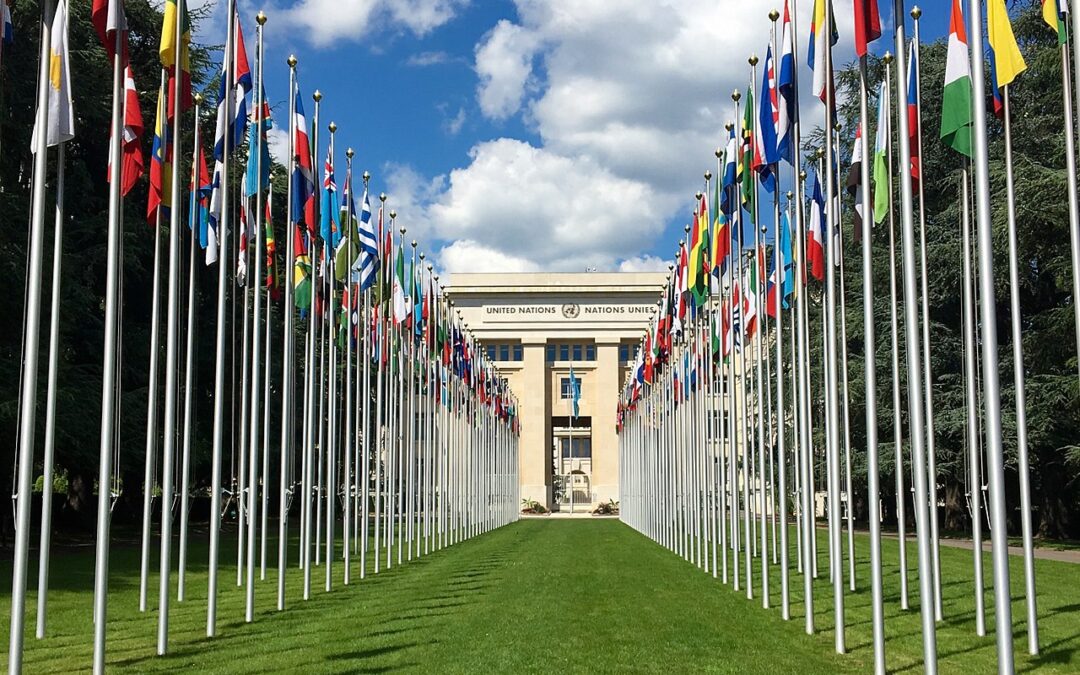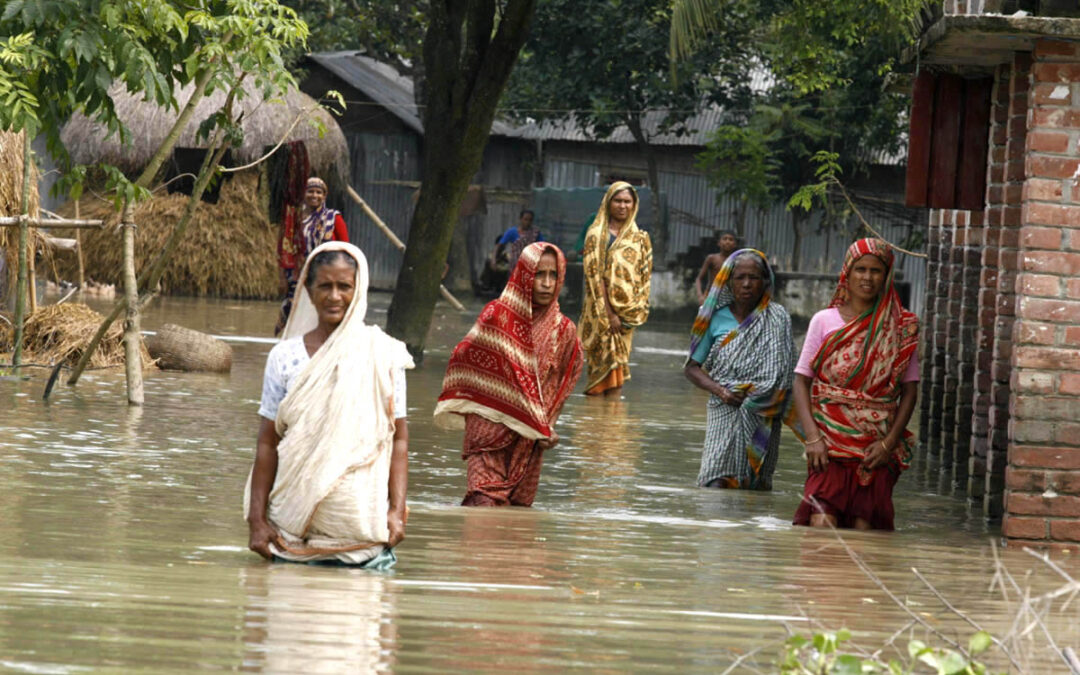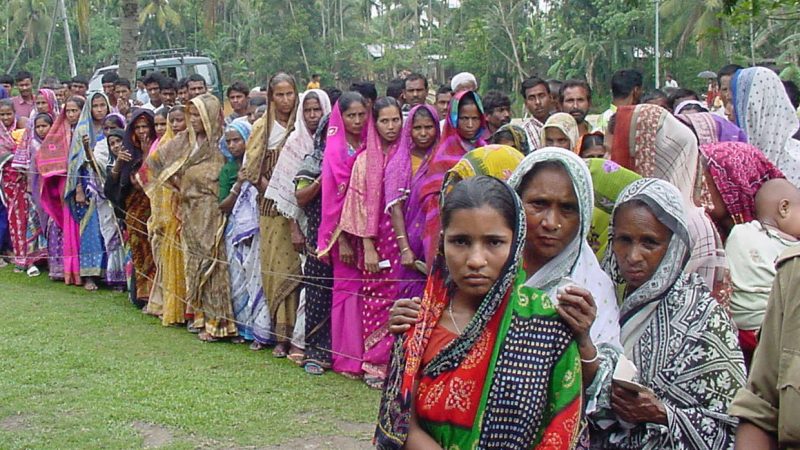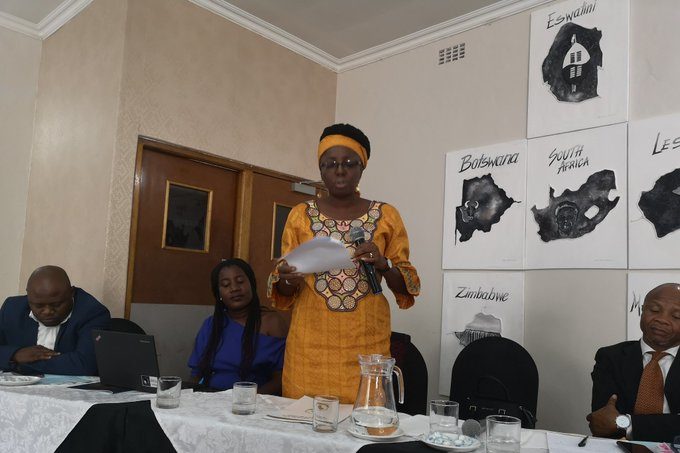
Sep 30, 2019 | Advocacy, Non-legal submissions
The ICJ has made a submission to the UN Human Rights Committee in advance of its forthcoming examination of Pakistan’s follow-up report under International Covenant on Civil and Political Rights (ICCPR).
In its submission, the ICJ has brought to the Committee’s attention concerns in relation to the following issues:
- Shortcomings in the legal framework relevant to enforced disappearances;
- The continuing practice of enforced disappearances and, in this context, the ongoing impunity of law enforcement and security agencies;
- The promulgation of the Actions (in aid of civil power) Ordinance, 2019; and
- The ineffectiveness of the Commission of Inquiry on Enforced Disappearances.
The Human Rights Committee will examine Pakistan’s follow-up report during its 127th session, which will be held in Geneva from 14 October to 9 November 2019.
The UN Human Rights Committee issued its Concluding Observations in August 2017, following its review in July 2017 of Pakistan’s first periodic report. Among its many recommendations, for follow-up the Committee prioritized recommendations related to the death penalty; enforced disappearances and extrajudicial killings; and freedom of religion, conscience and belief.
The Committee requested Pakistan to provide information on the implementation on these recommendations within one year of the adoption of the Concluding Observations, which was due on in August 2018.
Pakistan submitted its follow up report to the Committee in May 2019.
Download
Pakistan-UNHCR submission-advocacy-non legal submission-2019-ENG(submission in PDF)

Sep 25, 2019 | Events, News
The ICJ is organizing its first fundraising Gala concert on Monday 14 October at 7:30pm in the Palais Eynard, 4 rue de la Croix Rouge, Geneva. The event will support the ICJ and its fight for the defense of the Rule of Law in the world and marks the end of the series of events we organized for our 60th anniversary in the city of human rights.
The theme of our Gala will be: “Geneva, the Defense of the Rule of Law: What can I do?”
After a welcome from the Mayor of Geneva and an introduction from Me Pierre de Preux, former Bâtonnier of the Geneva Bar, ICJ Commissioners including Sir Nicolas Bratza (former President of the European Court of Human Rights), Dame Silvia Cartwright (former Judge and Governor General of New Zealand), Professor Bob Goldman (ICJ President and former President of the Inter-american Commission on Human Rights) and Ms Roberta Clarke (ICJ Executive Chair, UN Women’s Office for the Caribbean, UN Women’s Regional Office for Asia and the Pacific) will give concrete answers to this question.
But the evening is also to enjoy a wonderful Concert of the ‘Soloists of the Menuhin Academy’ (photo) and the cocktail after that.
To reserve: Pascale.andris@icj.org
You cannot come but still want to make a donation: please click here
Download the invitation
Invitation Gala 14 Oct

Sep 21, 2019 | Advocacy
The ICJ has joined several hundred organizations working to defend human rights, the environment, and climate justice in a bold declaration setting out a vision and objectives for addressing the climate crisis and the devastating human rights and environmental impact of catastrophic climate change.
The Declaration was adopted at a gathering of the the Peoples’ Summit on Climate, Rights and Human Survival in New York on 18-19 September, which brought together some 200 representatives of Indigenous Peoples, workers, academia, environmental and human rights groups, including the ICJ.
The Declaration warns that “the climate emergency threatens human survival, the environment and the enjoyment of all human rights, for present and future generations.”
It emphasizes that governments and corporations bear the primary responsibility for acting to address and reverse the drivers of climate change.
The signatories to the Declaration agreed to 10 types of actions, including, among others, placing human rights at the core of climate activism, demanding effective access to justice for individuals and communities whose rights are impacted by the climate crisis, and support for environmental human rights defenders.
Download
Universal-Peoples Summit Declaration CC-Advocacy-2019-ENG (full declaration in PDF)

Sep 6, 2019 | News
The ICJ, along with 124 other international and domestic civil society groups from around the world have condemned the actions of Indian government in publishing an incomplete and discriminatory Assam National Register of Citizens (NRC) on 31 August, 2019.
The NRC excludes some 1.9 million people – nearly 6 percent of the population of Assam – thereby rendering them at risk of statelessness. The statement points to violations of rights to equality and non-discrimination, as the process has disproportionately affected Muslims of Bengali descent, undocumented women and children as well as other minorities.
The groups call on India to take measures to redress the situation in a non- discriminatory and non-arbitrary manner, with full regard to due process rights and a commitment to protect the right to a nationality and to avoid statelessness of all long-term residents and their children.
Arbitrary deprivation of nationality is a human rights violation, which undermines the enjoyment of the human rights of those affected and their ability to participate fully in society. International law prohibits the arbitrary deprivation of nationality and obliges States to avoid statelessness, while guaranteeing the right of every child to acquire and preserve their nationality and to be protected from statelessness.
In 2015, the Assam state government, pursuant to a Supreme Court decision, announced it would initiate a process of updating the NRC, requiring every person in Assam who recognized themselves as an Indian citizen, to submit proof of their ancestry (or birth) in the country pre-dating 1971, the year that Bangladesh was formed. The act of requiring individuals to prove their citizenship by providing documentary evidence dating back over 50 years, and excluding applicants on the basis of their inability to fulfill this evidentiary burden, has led to arbitrary deprivation of nationality, contrary to Article 15 of the Universal Declaration of Human Rights.
Further, poor birth registration rates, despite an obligation under Article 7 of the Convention of the Rights of the Child to immediately register every birth has denied numerous applicants of a critical piece of evidence to establish their citizenship. Similarly, many people who possessed the required documents, have nonetheless been penalized due to administrative errors.
Despite repeated calls to action by UN human rights authorities, India has refused to reverse the process and other States have done little to press the Indian government to reverse course.
Those excluded from the list must appeal within 120 days to Foreigners Tribunals (FT), a quasi-judicial institution mandated to determine citizenship. In essence, this implies that the government already considers those excluded from the NRC to be foreigners, and not Indian citizens.
Find the full statement, endorsed by the ICJ and 124 other international and domestic civil society groups from around the world here: https://files.institutesi.org/cso-joint-statement-on-assam-nrc.pdf
Contact:
Maitreyi Gupta (Delhi), ICJ International Legal Adviser for India, t: +91 7756028369 e: maitreyi.gupta(a)icj.org
Frederick Rawski, ICJ Asia-Pacific Director, t: +66 64 478 1121; e: frederick.rawski(a)icj.org

Sep 2, 2019 | News
In a statement, the ICJ, along with various other local and international civil society organizations and affected communities demand redress for forced evictions following visit of African Commission member and ICJ Commissioner Jamesina King.
On 27-28 August 2019 members of local communities who have endured or are at imminent risk of forced evictions in Eswatini met in Manzini to continue their advocacy efforts against forced and mass evictions. These stakeholders called on the responsible government authorities in Eswatini to take immediate measures to address the practice of forced evictions in violation of the right to housing.
The Eswatini land governance system fails Swazi people. Most land is held by the King in “trust”, other Swazi people live on title-deed land without formal recognition. Swazi people do not enjoy security of tenure and are vulnerable to forced evictions. Under international human rights law, forced evictions may only happen as a last resort, in terms of a court order, once all other feasible alternatives have been exhausted and appropriate procedural protections are in place.
Some participants in the workshop had previously submitted a report that documents forced evictions in Eswatini and engaged with the African Commission on Human and Peoples’ Rights (ACHPR) at its 63rd Ordinary Session in Banjul, Gambia in October 2018. As a follow-up, the community representatives invited ACHPR Commissioner Jamesina King to participate in their meeting in Manzini in August 2019.
“It is very obvious that the laws of Eswatini have to evolve to provide these communities with legal protection and to put an end to forced evictions,” Commissioner King told the communities. King also called for the government to declare a moratorium on forced evictions until laws have been enacted which provide sufficient protection for the right to adequate housing.
The meeting, which was facilitated and coordinated in partnership with the Foundation for Socio-Economic Justice, the International Commission of Jurists, Amnesty International and the Southern African Litigation Centre, was also attended by local civil society organizations, religious groups and concerned individuals. The participants also had the opportunity of engaging with the Eswatini Commission on Human Rights and Public Administration.
Participants included representatives from communities recently affected by evictions from affected communities, from Nokwane and the Malkerns. Representatives from communities facing imminent eviction in Mbondzela, Gege in the Shiselweni region, Vuvulane, Madonsa and Sigombeni also participated.
Participants demanded the following in conclusion of the engagement:
- A public, time bound commitment to a moratorium on forced and mass evictions.
- The enactment of legislation that explicitly prohibits forced and mass evictions in all circumstances and sets out safeguards that must be strictly followed before any eviction is carried out.
- The provision of reparations for those families who have already been subjected to forced evictions in the absence of sufficient legal protections.
“The ICJ sees the Minister of Justice Pholile Dlamini-Shakantu’s willingness to discuss forced evictions with Commissioner King as a welcome indication of the government’s openness to constructive input by the African Commission. It is hoped that the government takes heed of struggles of community members, and acts swiftly to put an end to forced evictions in Eswatini”, said Arnold Tsunga, ICJ’s Africa Director.
Find the full statement, which is endorsed by the Foundation for Socio-Economic Justice, the International Commission of Jurists, Amnesty International and the Southern African Litigation Centre here;
Eswatini-Swazi Government to End Forced Evictions-News-Webstory-2019-ENG
For more information contact:
Tim Fish Hodgson timothy.hodgson(a)icj.org +27 82 871 9905







